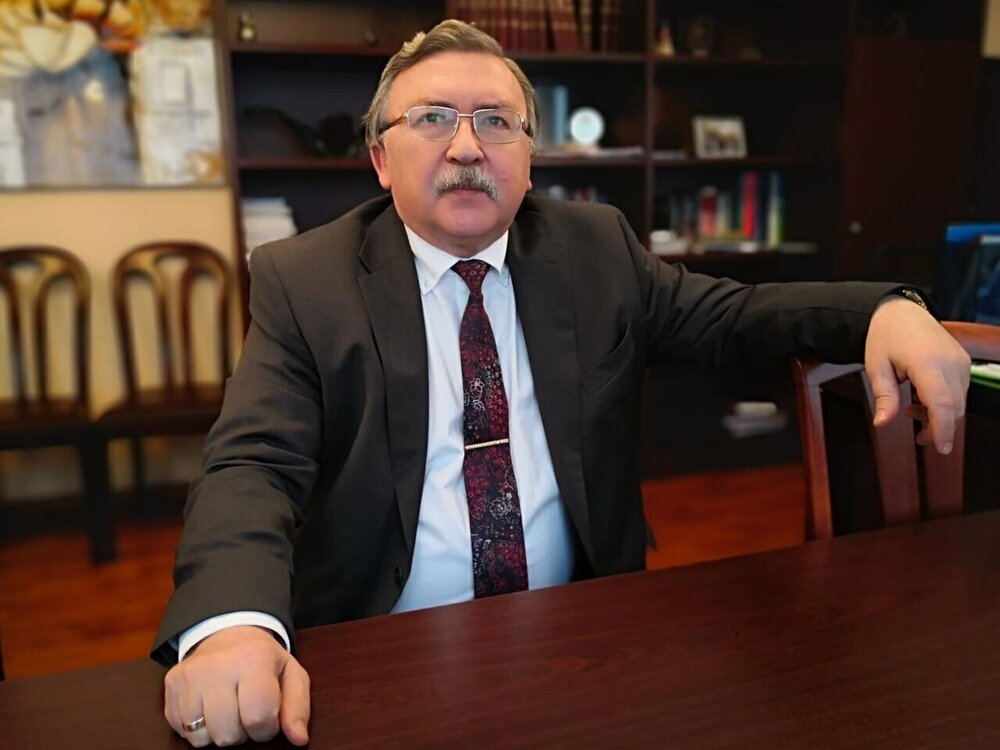Iran not denying access to IAEA inspectors, Russian envoy says

TEHRAN - Mikhail Ulyanov, Russia’s permanent representative to the Vienna-based international organizations, has said that Iran does not deny access to its nuclear sites by inspectors from the International Atomic Energy Agency.
“Iran doesn’t deny access, it did not provide access so far. It’s different. Iran doesn’t question the rights of IAEA and stands ready to continue consultations. IAEA expressed concerns in this regard but is also ready for dialogue. Let’s hope that problems will be resolved soon,” Ulyanov tweeted on Friday.
In another tweet on Thursday, he said the leak of the IAEA confidential report on Iran is “outrageous”.
“The leak of #IAEA confidential report on #Iran is outrageous, but it may have one positive implication. It is clear from the content that the issue is of no immediate proliferation concern. Events (if any) took place 20 years ago. The problem lies in a different dimension,” he tweeted.
Kazem Gharibabadi, Iran’s ambassador to the Vienna-based international organizations, has said the IAEA’s most recent report proves the continuation of the agency’s verification activities in Iran.
In comments on Friday night, Gharibabadi said the report also shows a suspension of Tehran’s commitment to the 2015 nuclear deal, officially known as the Joint Comprehensive Plan of Action (JCPOA).
On technical nuclear issues, the IAEA report says Iran’s stockpile of heavy water has surpassed the limit of 130 tons and reached 132.6 tons, he remarked, according to Tasnim.
The report also shows that Iran has installed new centrifuge machines, such as IR-4, IR-5, IR-6, IR-S, IR-S6, and IR-2M, for research and development purposes, the Iranian ambassador to the IAEA said.
According to Gharibabadi, the report also confirms that Iran is enriching uranium up to a purity level of 4.5 percent – above the limit specified in the JCPOA - and that the Islamic Republic has produced 1,571.6 kilograms of enriched uranium, some 550 kg more than the figures in the March report, including 1,356.5 kg of uranium with 4.5 percent purity.
On the verification activities, the new report has pointed to the continuation of monitoring and verification activities under the special conditions after the outbreak of the coronavirus and Iran’s proper cooperation with the IAEA, the ambassador added.
The report also maintains that Iran is carrying out the Additional Protocol temporarily and voluntarily and also verifies the non-diversion of declared nuclear material in Iran, he added.
Iran started to remove curbs on its nuclear program exactly one year after the U.S. abandoned the nuclear deal and imposed the harshest sanctions in history against Iran in line with the Trump administration’s “maximum pressure” campaign on Tehran.
From the very beginning that Iran started to remove ban on its nuclear program, officials in Tehran announced if the European Union, especially its big trio (Germany, France, and Britain which are signatory the deal), takes steps to compensate the sanctions' effect it will immediately reverse its decision.
NA/PA
Leave a Comment